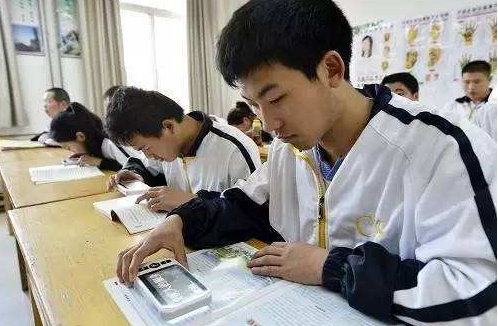摘 要
青少年攻击行为与个体所处的生态背景密切相关,家庭是个体发展的最重要的环境之一,它在青少年的发展中起着无可替代的作用。家庭社会经济地位会影响儿童的健康、认知和社会情绪等方面。目前已有不少研究探讨家庭社会经济地位对青少年攻击行为的影响。但少有研究深入探讨家庭社会经济地位影响青少年攻击行为的路径及其心理机制。
本研究由相关研究和实验研究两部分组成:研究一为相关研究,采用问卷调查的方式,总共选取了 658 名被试,从个体因素和父母教养方式两方面,考察家庭环境系统→个体因素→青少年攻击行为的中介模式,力图深入揭示环境系统(社会经济地位)影响青少年攻击行为的过程。结构方程模型分析表明:(1)家庭客观社会经济地位与攻击行为是显着相关的;(2)主观社会经济地位、个体歧视知觉在家庭客观社会经济地位和攻击行为之间起链式中介作用;(3)主观社会经济地位、社会排斥感在家庭客观社会经济地位和攻击行为之间起链式中介作用;(4)基本心理需求在家庭客观社会经济地位和攻击行为之间起部分中介作用;(5)主观社会经济地位、基本心理需求在家庭客观社会经济地位和攻击行为之间起链式中介作用;(6)消极教养方式、基本心理需求在家庭社会经济地位和攻击行为之间起链式中介作用。
研究二为实验研究,总共选取了 120 名被试并随机分成四组,采用社会比较范式(麦克阿瑟梯子启动方法)对个体的主观社会经济地位进行 4 种不同类型启动(经济上行、经济下行、社会上行和社会下行),使被试暂时体验到不同的社会经济地位,进一步分开考察经济地位和社会地位对攻击倾向的影响。研究结果显示:(1)比较方向主效应显着,社会上行比较个体比社会下行比较个体报告更多攻击倾向;(2)比较方向和比较内容的交互作用显着,当启动社会地位比较时,比较方向的主效应显着,同启动上行比较组相比,接受启动下行比较组的学生攻击倾向下降。然而,当启动经济地位比较时,比较方向的主效应不显着;(3)状态自尊在社会经济地位与青少年攻击行为之间具有中介作用, 即社会经济地位通过降低状态自尊,进而增加青少年攻击行为。
根据以上研究结果,主要得到以下几个结论:
(1)家庭客观社会经济地位与青少年攻击行为显着相关。
(2)个体基本心理需求和父母教养方式两个因素纳入结构方程模型后,家庭客观社会经济地位对青少年攻击行为的直接预测不显着,而是通过以上两个因素为中介作用显着影响青少年攻击行为。
(3)家庭客观社会经济地位正向显着预测个体主观社会经济地位。
(4)主观社会经济地位通过个体基本心理需求(歧视知觉和社会排斥感也是基本心理需求满足程度的指标)显着影响青少年攻击行为。
(5)主观社会地位对青少年攻击行为的影响作用显着大于主观经济地位。
综上可见,社会经济地位是影响青少年攻击行为的风险因素,这种影响是通过父母消极教养方式、主观社会经济地位、基本心理需求、个体歧视知觉和排斥感等一系列中介因素来实现的。给我们的实践启示是:青少年成长过程中,我们应该采取一系列相应的措施减少低家庭社会经济地位对青少年攻击行为的影响。在家庭层面,父母更应该采用情感温暖、支持理解的教养方式,在情感、精神方面多沟通、交流并给予及时的鼓励和支持。在学校层面,我们尽可能为家境贫困青少年学生创造提供尊重、支持和理解的生活学习环境与条件,给予更多的教师支持、同伴关怀。通过尽可能多的途径让他们感受到被需要、被支持、被尊重、被理解,并且把这种感觉转化为一种温暖、正向的力量改变困境学生的认知并影响他们的行为。
关键词:社会经济地位;教养方式;基本心理需求;攻击行为;社会比较。
Abstract
Adolescent aggressive behaviors have emerged as a significant social issue,closely related to the ecological background of the individual . Family is one of the most important environment for individual development. It plays an irreplaceable role in the development of adolescents.Family socioeconomic status is associated with a wide array of health, cognitive, and socioemotional outcomes,with effects beginning prior to birth and continuing into adulthood. Many previous studies have explored the impact of family socioeconomic status on adolescent aggressive behavior.However, few studies have deeply explored the path and psychological mechanism of family socioeconomic status influencing adolescent aggressive behaviors.
This study includes two parts of relevant research and experimental research.Study 1, a related research, adopting the method of questionnaire survey,chose 658 respondents, from two aspects of individual social cognition and parentingstyles to investigate the mediating effect modes of family environment systems →individual social cognition →adolescent aggressive behaviors.It revealed the process of environmental system (Family Socioeconomic Status) how to influence adolescent aggressive behaviors.Structural equation modeling revealed that an objective indicator of family socioeconomic status was significantly related to aggressive behaviors; (b)subjective socioeconomic status and perceived discrimination was a chain mediating effect between the family socioeconomic status and the aggressive behavior;(c)subjective socioeconomic status and social exclusion was a chain mediation path linking the family socioeconomic status and the aggressive behavior ; (d) the basic psychological need mediated partially the the associations between family socioeconomic status and aggressive behavior; (e) Subjective socioeconomic status and basic psychological need was a partial chain mediator between family socioeconomic status and the aggressive behavior;(f) parenting style and basic psychological need was a partial chain mediator between family socioeconomic status and the aggressive behavior.
In Study 2, manipulated to temporarily experience diverse subjective socioeconomic ranks by four conditions of social comparison( Mac Arthur Ladder priming technique), a total of 120 subjects were chosen,and then the relationshipbetween subjective socioeconomic status and aggressive behavior was investigated from an empirical point of view.we further examined the influence of subjective economic status and subjective social status on expectations for aggressive behaviors.
A two-way ANOVA showed (a) comparison direction had a significant main effect ,the upward comparison individuals reported to have greater expectations for aggressive behaviors, relative to the downward comparison ones;(b) there existed asignificant interaction between comparison direction and status types.Post-hoc analysis indicated that comparison direction had a significant effect under the social status comparison. however, there was no effect under the economic status comparison;(c) state self-esteem mediated the effect of socioeconomic status on adolescent aggressive behavior.
Based on the above research, key findings are listed as following:
(1) The objective socioeconomic status in the family is significantly related to aggressive behaviors.
(2) Two factors , basic psychological needs and parenting styles, were incorporated into the structural equation model.There was no direct effect between the family socioeconomic status and the aggressive behaviors.Basic psychological needs and parenting styles mediated the associations between family socioeconomic status and aggressive behaviors.
(3) Family socioeconomic status positively predicted subjective socioeconomic status.
(4) The basic psychological need mediated the effect of subjective socioeconomic status on aggressive behaviors.
(5)Subjective social status had greater effect on expectations for aggressive behaviors, relative to subjective economic status .
In conclusion, socioeconomic status is the risk factor that affects adolescentaggressive behaviors.This influence is based on a series of mediate factors ,such as negative parenting styles, subjective socioeconomic status, basic psychological needs,perceived discrimination and social exclusion.The practical revelation to us is that we should take a series of measures to reduce the influence of low family socioeconomic status on adolescent aggressive behaviors in the process of teenagers' growth. In family, parents should carry out parenting styles such as warm emotion and understanding. In school, we, teachers and students should try our best to provide respect, supporting and understanding to adolescents in low family socioeconomic status. With all solutions, we should make them feel needed, supported, respected and understood, and these feeling will be transformed to warm and positive strength that can change their cognitive and affect their behaviors.
Key words: socioeconomic status ; parenting style ; basic psychological need ;aggressive behavior ; social comparison。
引言
孩子的教育,是家庭、学校和社会都负有责任的共同的事业。美国学者布朗芬布伦纳(urie bronfenbrenner)创建的生态学系统理论(ecological systemstheory)认为,与儿童有着直接、间接接触的生态环境会制约和影响儿童的发展,它是由多个相互镶嵌、相互作用的同心圆所构成。生态系统同心圆从内到外依次为微观系统(microsystem)、中间系统(mesosystem)、外层系统(exosystem)、宏观系统(macrosystem)和时代系统(chronosystem)。其中,微系统的影响,对儿童的发展,则往往是最直接和最重要的。这主要包括儿童生活的场所及其周边环境,如家庭、学校、同伴和社区。而家庭则是出生后最早的生活环境,父母则是第一任老师。家庭的社会经济地位(包括家庭收入状况、父母教育状态和职业声望的量化)与微系统是最密切相关的,家庭社会经济地位对儿童的身心健康、社会情绪和社会认知等许多方面都会产生一定影响。其影响作用始于出生之前,持续到成年(Bradley & Corwyn, 2002)。家庭投资理论认为,高社会经济地位家庭能为孩子提供一系列的更多更好的照顾、认知刺激活动、教养行为和社会接触,会作为种种因素,潜在地影响儿童的成长与发展。而在许多处于低社会经济地位的家庭中的儿童,则因为缺乏获得相同或相等的社会资源和经验的机会,他们面临更多发展问题的风险(Brooks-Gunn & Duncan,1997)。已有大量研究表明家庭社会经济地位会显着影响青少年的反社会行为(Piotrowska,Stride,Croft,&Rowe,2014),尤其表现在攻击行为上(陈冰,赵玉芳,2017;Th & Luze,2012)。
首先,家庭是儿童社会化的第一场所,在儿童的成长和发展过程中,接触最多的,无疑是他们的父母。父母对子女的教养方式、态度和行为,对他们成长过程中的社会化进程,起着极其重要和关键的作用,尤其表现在对心理健康状况、人格特征和行为方式等各个方面。然而每个社会经济地位指标(收入、教育、职业)都与父母教养密切相关,教养方式又会通过技能活动和学校行为影响学业成绩(Dotterer,Iruka,& Pungello,2012)。社会经济地位与孩子的社会化和社会环境中的八个因素呈显着负相关,包括严厉的管教,缺乏母爱的温暖,接触到积极的成人模型,母亲积极的价值观,家庭生活的压力,母亲缺乏社会支持、同伴群体的不稳定,以及缺乏认知刺激。这八个因素同样也显着预测教师评定外化问题行为和同伴提名的攻击行为(Dodge,Pettit, & Bates,1994;Holmes,2013)。其次,社会经济地位是社会阶层划分的客观指标,相比高社会经济地位群体,低社会经济地位群体更消极(贺雯,2010)、在社会交往中能更准确地追踪他们朋友的敌对情绪(Kraus,Horberg,Goetz, & Keltner,2011),也往往会对外部环境的潜在威胁更加提高警惕(Chen & Matthews,2001;Gallo & Matthews,2003)。根据MacDonald 和 Leary(2005)的威胁分析理论和社会阶层的概念体系,社会刺激可以触发个体的威胁检测系统,社会刺激包括社会排斥(Macdonald et al.,2005)、被 轻 视 (Mendes & Major,2008) 和 实 际 或 感 知 到 处 于 较 低 的 社 会 阶 层(Chow,Tiedens,& Govan,2008)。考虑到低社会经济地位者对外界刺激的捕捉更具敏感性这一特点,可能使处于社会排斥情境中的低社会经济地位个体感受到更多的被排斥、被歧视的感觉。社会排斥会降低个体的四种基本心理需求,即归属感、自尊、控制感以及存在意义感(Williams, 2001)。基本心理需求理论认为,当个体各个层次的心理需求不能获得有效满足时,一定会产生相应的各种心理问题(Ryan, Sheldon,Kasser, & Deci,1996),为了恢复自己受损的心理需求而增加攻击行为(Williams & Nida,2011)。
综上可知,家庭社会经济地位对个体攻击行为的影响路径是多方面的,攻击行为的发生,可能既受家庭风险因素的影响导致个体认知、情绪的改变,也会受负面情境因素的影响。因此,本研究试图从两个方面来展开:其一、从个体社会认知和父母教养方式两方面,探讨社会经济地位对攻击行为影响的机制。其二、采用社会比较范式探究社会经济地位与攻击行为的因果关系。研究将结合我国实情,致力于寻找低社会经济地位儿童成长中的可能保护因素和破坏性因素,及其对攻击行为的影响,希望能为问题行为儿童的干预找到更具有针对性的指标。
【由于本篇文章为硕士论文,如需全文请点击底部下载全文链接】
1 文献综述
1.1 社会经济地位及其对家庭和青少年个体发展的影响
1.1.1 社会经济地位概述
1.1.2 社会经济地位的划分和测量
1.1.2 社会经济地位对家庭和青少年个体发展的影响
1.2 攻击行为的概念、分类及其影响因素
1.2.1 攻击行为的概念及分类
1.2.2 攻击行为的影响因素
1.3 社会经济地位与攻击行为关系的研究
1.3.1 社会经济地位、父母消极教养方式与攻击行为的关系
1.3.2 社会经济地位、个体因素与攻击行为的关系
2 问题提出
2.1 已有研究存在的问题
2.2 研究思路
2.3 研究意义
3 研究一 社会经济地位对青少年攻击行为影响的中介机制
3.1 研究目的
3.2 研究方法
3.2.1 研究对象
3.2.2 研究工具
3.2.3 研究程序
3.2.4 数据分析与处理
3.3 数据结果
3.3.1 个体歧视知觉在社会经济地位与攻击行为之间的中介作用
3.3.2 社会排斥感在社会经济地位与攻击行为之间的中介作用
3.3.3 基本心理需求在社会经济地位与攻击行为之间的中介作用
3.3.4 父母消极教养方式、基本心理需求在社会经济地位与攻击行为之间的中介作用
3.4 讨论
3.4.1 个体因素的中介作用分析
3.4.2 父母消极教养方式、基本心理需求相整合的中介作用分析
4 研究二 主观社会地位和主观经济地位:社会比较对攻击倾向的影响
4.1 研究目的
4.2 研究方法
4.2.1 被试
4.2.2 实验材料
4.2.3 实验设计
4.2.4 实验程序
4.2.5 数据分析和处理
4.3 数据结果
4.3.1 社会经济地位比较对状态自尊和攻击倾向的影响
4.3.2 状态自尊在主观社会经济地位和攻击倾向之间的中介作用
4.4 讨论
4.4.1 主观经济地位和主观社会地位对攻击行为和状态自尊的影响
4.4.2 主观社会经济地位对攻击行为的影响:状态自尊的中介作用
5 综合讨论
5.1 家庭客观社会经济地位与攻击行为之间的中介机制
5.2 社会地位、经济地位对攻击行为影响的差异
6 研究不足与展望
7 结论
本研究得出以下结论:
(1)家庭客观社会经济地位与青少年攻击行为显着相关。
(2)纳入个体基本心理需求和父母教养方式两个因素后,家庭客观社会经济地位对青少年攻击行为的直接预测不显着,而是通过以上两个因素为中介作用显着影响青少年攻击行为。
(3)家庭客观社会经济地位正向显着预测个体主观社会经济地位。
(4)主观社会经济地位通过个体基本心理需求(歧视知觉和排斥感也是基本心理需求满足程度的指标)显着影响青少年攻击行为。
(5)通过社会比较范式操纵主观社会经济地位(社会地位、经济地位),当启动社会地位比较时,启动下行比较组的学生攻击倾向显着低于上行比较组,然而,启动经济地位比较时,则无显着差异。也就是说,社会地位比经济地位对青少年更具有影响力。
参考文献
